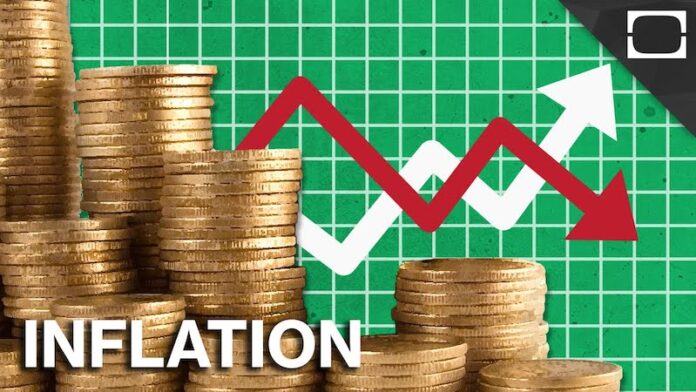Some industrialists and entrepreneurs on Monday called on the Federal Government to adopt modalities that could boost micro businesses, revamp moribund industries and reduce tariffs on consumer goods to tackle rising cost of items.
They gave the advice in in reaction to the July inflation rate of 19.64 per cent.
The National Bureau of Statistics (NBS) posted that Nigeria’s headline inflation rate increased by 2.27 per cent to 19.64 per cent from 18.60 per cent year on year; the highest since 2005.
The NBS attributed the development to disruptions in food supply index, Naira depreciation, transportation and logistics costs and higher energy costs.
Dr Muda Yusuf, Founder, Centre for the Promotion of Private Enterprises (CPPE), said to address the rising cost of items which was largely being felt by ordinary citizens, manufacturers must be given some succour.
Yusuf stated that the advice had become important seeing that the rising cost of basic items and staple food had weakened purchasing power of citizens as real incomes had become eroded.
He added that the development had aggravated pressure on production costs, negatively impacted profitability, eroded shareholders value and undermined investors’ confidence.
Yusuf said that government could tweak the tariff policies by granting concessionary import duty on intermediate products for industrialists.
He stressed that the Central Bank of Nigeria (CBN) also needed to adopt a less rigid exchange rate policy to address the problem of acute foreign exchange scarcity with its attendant backlash on the economy.
Yusuf added that the accelerated fiscal deficit financing, currently in the threshold of N20 trillion by the CBN was a significant inflation driver that must be taken more seriously.
“The heightened inflationary pressures in the Nigerian economy remains very troubling and the major inflation drivers, which the supply side issues have not abated, if anything, they have become more intense.
“These factors include transportation costs, logistics challenges, exchange rate depreciation, forex liquidity issues, hike in energy prices, climate change, insecurity in many farming communities and structural bottlenecks to production.
“Any mitigation measures would have to be situated in the context of these factors,” he said.
In her remarks, Dr Chinyere Almona, Director-General, Lagos Chamber of Commerce and Industry (LCCI), noted that the high cost of aviation fuel, Jet A1 drove the cost of air transport to the roof becoming a major driver of the July inflation rate.
Almona specified that for manufacturers, input prices spiked due to increase in items such as diesel, with the country’s electricity crisis worsening alongside a bumpy road to renewable energy deployment.
She stressed the need for government to deploy a good mix of both fiscal and monetary policies to tackle the core drivers of the inflation scourge in Nigeria.
The LCCI DG said that there should be targeted financing for critical sectors like agriculture, food processing, aviation fuels, transport, and foreign exchange availability for manufacturing inputs.
“A major worry is about the inflation scourge constraining production, causing job losses, and courting an imminent recession.
“It is obvious that government’s intervention so far has not impacted the inflationary pressures that keep rising till now.
“Without concrete and quick steps to intervene, the rising tide of inflation rate may continue into the end of the year,” she said.
Mr Saviour Iche, National President, Association of Micro Entrepreneurs of Nigeria (AMEN), said that the July inflation figure was not reflective of current realities with masses, entrepreneurs and manufacturers.
According to him, bread and other staple food, raw materials, chemicals and other manufacturing inputs had skyrocketed by over 100 per cent in one year.
He attributed the development to the depreciation of the Naira, moribund and dying industries, absence of funding and foreign exchange, high cost of raw materials among others.
Iche tasked government to ensure that funding was particularly available to micro entrepreneurs for recapitalisation to revive dying businesses and revamp moribund industries.
“Government should call a stakeholders meeting for start-ups, provide funding for local manufacturers, get a proper channel for the distribution of funds to the micro entrepreneurs, so that the monies would indeed get to those that need it.
“This can be achieved if government opens a micro entrepreneurs bank in all local governments in the long term, while in the short term, commercial banks should be mandated to create an entrepreneurship desk to handle micro entrepreneurs financial needs.
“Once all these are in place, businesses would run more sustainably, unemployment would be better tackled, and disposable income would be better distributed,” he said.




